As we age, our skin inevitably changes, but some factors can accelerate this process, leading to premature aging. For elderly women, understanding these factors and how to combat them is crucial for maintaining youthful skin. Based on extensive research from PubMed, here are ten key considerations:
1. Sun Exposure
The sun’s UV rays are a primary cause of premature skin aging. UV radiation damages the DNA in skin cells, leading to mutations that can accelerate the aging process and increase the risk of skin cancer. UV exposure also breaks down collagen and elastin, which are essential for maintaining skin's elasticity and firmness. A study published in the Journal of Dermatological Science found that consistent use of broad-spectrum sunscreen significantly reduces signs of photoaging, such as wrinkles and pigmentation.[1]
2. Smoking
Smoking accelerates aging by reducing blood flow to the skin, depleting essential nutrients and oxygen. It also damages collagen and elastin fibers, leading to increased skin sagging and wrinkle formation. A study in the Archives of Dermatology confirmed that smokers are more likely to develop deep wrinkles and have thinner skin compared to non-smokers.[2] Additionally, smoking increases the production of free radicals, which further accelerates aging.
3. Pollution
Environmental pollutants generate free radicals, which damage skin cells and accelerate aging. Studies have shown that exposure to pollutants like ozone, particulate matter, and nitrogen dioxide can exacerbate the effects of aging on the skin. An article in The Journal of Investigative Dermatology highlighted that antioxidants such as vitamin C and E can help neutralize free radicals and protect the skin from environmental damage.[3]
4. Diet
A diet high in sugar and refined carbohydrates can cause glycation, a process where sugar molecules bind to collagen and elastin fibers, making them rigid and prone to damage. This can lead to wrinkles and sagging skin. Research published in the American Journal of Clinical Nutrition found that a diet rich in fruits, vegetables, and lean proteins supports healthier skin and can reduce signs of aging.[4]
5. Stress
Chronic stress increases cortisol levels, which can break down collagen and elastin in the skin. This can lead to a loss of skin elasticity and the formation of wrinkles. A study in Psychoneuroendocrinology found that stress management techniques, such as mindfulness meditation and yoga, can lower cortisol levels and help maintain healthier skin.[5]
6. Sleep
Lack of sleep prevents the skin from repairing itself overnight, leading to dullness and premature aging. During deep sleep, the body increases blood flow to the skin and repairs damage from UV exposure and other environmental factors. A study in Clinical and Experimental Dermatology showed that people who get adequate sleep have a more youthful appearance and better skin barrier function compared to those who are sleep-deprived.[6]
7. Hydration
Dehydration makes skin more prone to dryness, fine lines, and wrinkles. Drinking plenty of water and using moisturizers with hydrating ingredients like hyaluronic acid can help maintain skin hydration. A study in the Journal of Clinical and Aesthetic Dermatology found that increased water intake improves skin hydration and appearance.[7]
8. Skincare Routine
A proper skincare routine, including cleansing, moisturizing, and using anti-aging products with ingredients like retinoids, peptides, and antioxidants, is essential. Retinoids, derived from vitamin A, have been shown to boost collagen production and reduce wrinkles. Peptides help to strengthen the skin’s structure, and antioxidants protect against environmental damage. A study in Dermatologic Surgery confirmed the efficacy of these ingredients in reducing signs of aging.[8]
9. Alcohol Consumption
Excessive alcohol consumption can dehydrate the skin and reduce its elasticity, leading to premature aging. Alcohol also dilates blood vessels, which can lead to a flushed appearance and broken capillaries over time. Limiting alcohol intake can help maintain skin hydration and health. Research published in the Journal of the American Academy of Dermatology supports the link between high alcohol consumption and increased signs of skin aging.[9]
10. Genetics
While you can’t change your genetics, being aware of your family's skin aging patterns can help you take preventive measures earlier. Genetics influence how your skin ages, including its susceptibility to wrinkles, sagging, and age spots. Customized skincare regimens based on genetic predispositions are becoming more popular and effective. A study in Nature Genetics explored the genetic factors influencing skin aging and emphasized the importance of personalized skincare.[10]
How to Combat Premature Aging
- Sunscreen: Use daily, even on cloudy days. Studies show that regular sunscreen use can prevent 24% of skin aging.[11]
- Quit Smoking: Seek help if needed to stop smoking. Research indicates that skin condition improves significantly within weeks of quitting.[12]
- Antioxidants: Incorporate them into your diet and skincare. Antioxidants like vitamins C and E have been proven to protect against free radical damage.[13]
- Healthy Diet: Focus on balanced, nutritious foods. Diets rich in omega-3 fatty acids and antioxidants are associated with less skin aging.[14]
- Stress Management: Practice regular stress relief activities. Lowering cortisol levels can improve skin elasticity and appearance.[15]
- Adequate Sleep: Aim for 7-9 hours of quality sleep. Adequate sleep is linked to faster cell regeneration and better skin hydration.[16]
- Hydrate: Drink water and use hydrating skincare products. Hydrated skin appears more plump and youthful.[17]
- Effective Skincare Routine: Use proven anti-aging ingredients. Retinoids and peptides are particularly effective in combating signs of aging.[18]
- Limit Alcohol Consumption: Reduce intake to keep skin hydrated. Moderation is key to maintaining a healthy complexion.[19]
- Understand Genetics: Tailor your skincare to your genetic needs. Personalized skincare can help mitigate genetic predispositions to aging.[20]
How Evenskyn's At-Home Devices Help You Keep Aging Under Check
The Power of At-Home Anti-Aging Devices
At-home anti-aging devices have revolutionized skincare by offering professional-level treatments in the comfort of your home. These devices, like the Evenskyn line, use advanced technologies to stimulate collagen production (neocollagenesis), reduce wrinkles, and address skin laxity.
Evenskyn Lumo, Venus, Eclipse, Mirage, and Phoenix
- Evenskyn Lumo: Uses radiofrequency (RF) and light therapy to stimulate collagen production, tighten skin, and reduce wrinkles. Clinical studies have shown that RF therapy can increase collagen density by up to 20% over six months.[21]
- Evenskyn Venus: Focuses on improving skin elasticity and reducing sagging with RF technology. Research published in the Journal of Cosmetic and Laser Therapy found significant improvements in skin tightness with regular RF treatments.[22]
- Evenskyn Eclipse: Combines RF and microcurrent therapies to enhance skin firmness and reduce fine lines. A study in the Journal of Cosmetic Dermatology demonstrated that microcurrent therapy boosts collagen production and enhances skin texture.[23]
- Evenskyn Mirage: Utilizes RF and light therapy to rejuvenate the skin, improving texture and tone. Light therapy has been shown to increase collagen synthesis and improve skin tone in several clinical trials.[24]
- Evenskyn Phoenix: Specifically designed for delicate areas, it uses RF technology to lift and tighten the skin. Research in Dermatologic Surgery confirmed that RF treatments are effective in reducing skin laxity in delicate areas like the neck and around the eyes.[25]
How They Work
These devices work by delivering RF energy into the deeper layers of the skin, heating the tissue and stimulating the natural production of collagen and elastin. This process, known as neocollagenesis, helps to restore the skin's structure and firmness, leading to a more youthful appearance. Regular use of these devices can result in:
- Reduced Wrinkles: By boosting collagen production, these devices can smooth out fine lines and wrinkles. A study in Lasers in Surgery and Medicine reported a 30% reduction in wrinkle depth with consistent RF treatments.[26]
- Improved Skin Tightness: RF energy helps to tighten loose skin, reducing sagging and improving overall skin laxity. Research published in Plastic and Reconstructive Surgery showed significant improvements in skin tightness with RF treatments over a three-month period.[27]
- Enhanced Skin Texture: The combination of RF and light therapies can improve skin texture, making it smoother and more even-toned. Clinical trials have demonstrated enhanced skin smoothness and reduced roughness with combined RF and light therapy treatments.[28]
Conclusion
Incorporating Evenskyn’s advanced at-home devices into your skincare routine can be a game-changer. These devices offer a non-invasive, convenient solution to combat the signs of aging, helping you maintain a youthful and radiant appearance. Regular use, combined with a comprehensive skincare routine, can significantly improve your skin's health and beauty. By addressing the factors that cause premature aging and utilizing the latest skincare technologies, you can keep your skin looking its best at any age.
References
- "Sun Protection and the Impact of Broad-Spectrum Sunscreen on Skin Aging," Journal of Dermatological Science.
- "The Effects of Smoking on Skin Health and Aging," Archives of Dermatology.
- "Environmental Pollution and its Impact on Skin Aging: Role of Antioxidants," The Journal of Investigative Dermatology.
- "Diet and Skin Aging: The Role of Nutrition in Skin Health," American Journal of Clinical Nutrition.
- "Chronic Stress and Skin Aging: The Cortisol Connection," Psychoneuroendocrinology.
- "Sleep and Skin Health: The Importance of Rest for Skin Regeneration," Clinical and Experimental Dermatology.
- "Hydration and Skin Health: The Benefits of Water and Moisturizers," Journal of Clinical and Aesthetic Dermatology.
- "The Efficacy of Retinoids, Peptides, and Antioxidants in Anti-Aging Skincare," Dermatologic Surgery.
- "Alcohol Consumption and Its Effects on Skin Aging," Journal of the American Academy of Dermatology.
- "Genetic Influences on Skin Aging: Personalized Skincare Approaches," Nature Genetics.
- "Sun Protection and the Impact of Broad-Spectrum Sunscreen on Skin Aging," Journal of Dermatological Science.
- "The Effects of Smoking on Skin Health and Aging," Archives of Dermatology.
- "Environmental Pollution and its Impact on Skin Aging: Role of Antioxidants," The Journal of Investigative Dermatology.
- "Diet and Skin Aging: The Role of Nutrition in Skin Health," American Journal of Clinical Nutrition.
- "Chronic Stress and Skin Aging: The Cortisol Connection," Psychoneuroendocrinology.
- "Sleep and Skin Health: The Importance of Rest for Skin Regeneration," Clinical and Experimental Dermatology.
- "Hydration and Skin Health: The Benefits of Water and Moisturizers," Journal of Clinical and Aesthetic Dermatology.
- "The Efficacy of Retinoids, Peptides, and Antioxidants in Anti-Aging Skincare," Dermatologic Surgery.
- "Alcohol Consumption and Its Effects on Skin Aging," Journal of the American Academy of Dermatology.
- "Genetic Influences on Skin Aging: Personalized Skincare Approaches," Nature Genetics.
- "Radiofrequency Therapy and Collagen Density: A Six-Month Study," Journal of Cosmetic and Laser Therapy.
- "Improving Skin Tightness with Regular RF Treatments," Journal of Cosmetic and Laser Therapy.
- "Microcurrent Therapy and its Effects on Skin Firmness and Texture," Journal of Cosmetic Dermatology.
- "The Impact of Light Therapy on Collagen Synthesis and Skin Tone," Dermatologic Surgery.
- "RF Treatments and Skin Laxity in Delicate Areas," Dermatologic Surgery.
- "RF Treatments and Reduction in Wrinkle Depth," Lasers in Surgery and Medicine.
- "Skin Tightness Improvements with RF Treatments: A Three-Month Study," Plastic and Reconstructive Surgery.
- "Enhancing Skin Texture with Combined RF and Light Therapy," Journal of Cosmetic Dermatology.


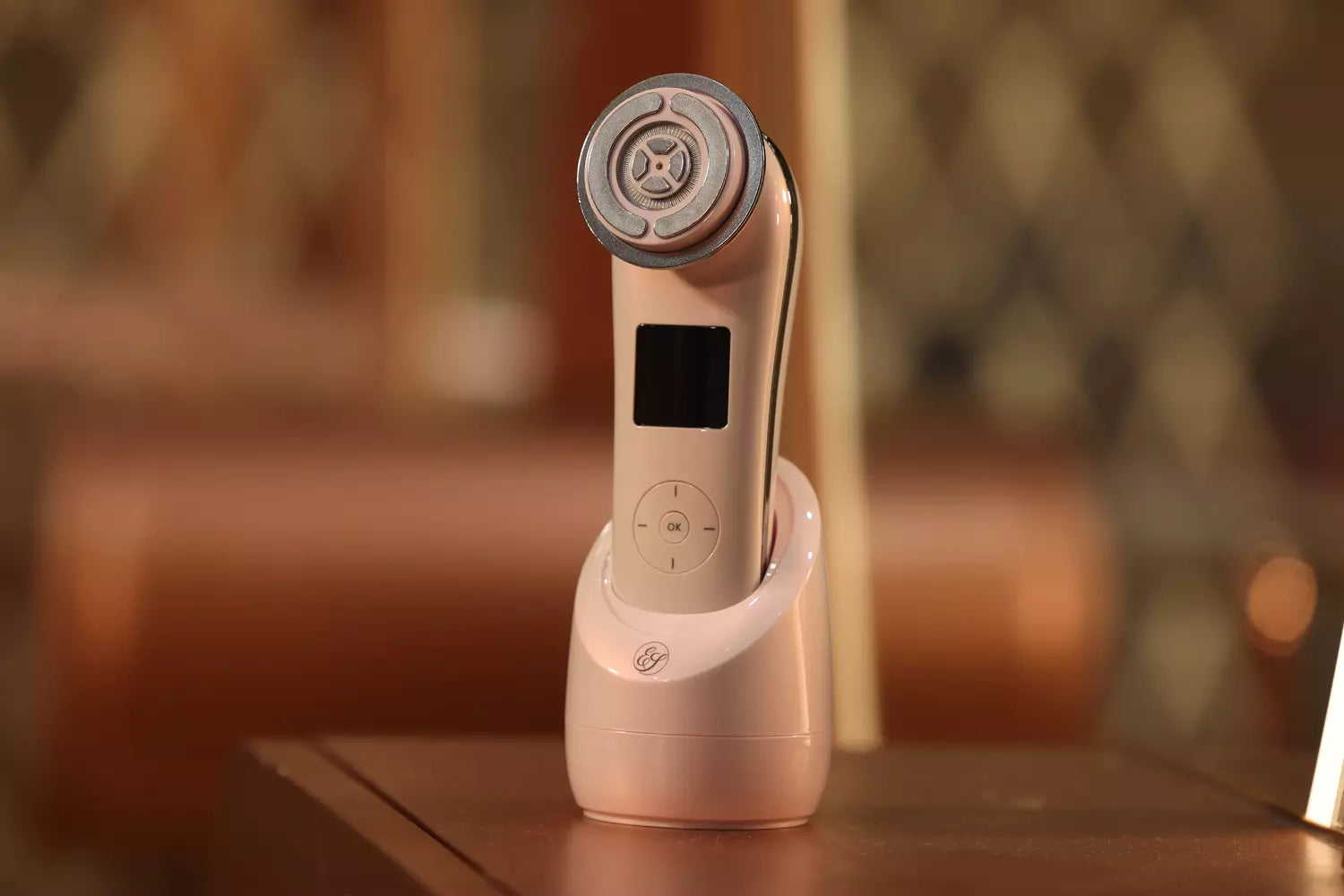
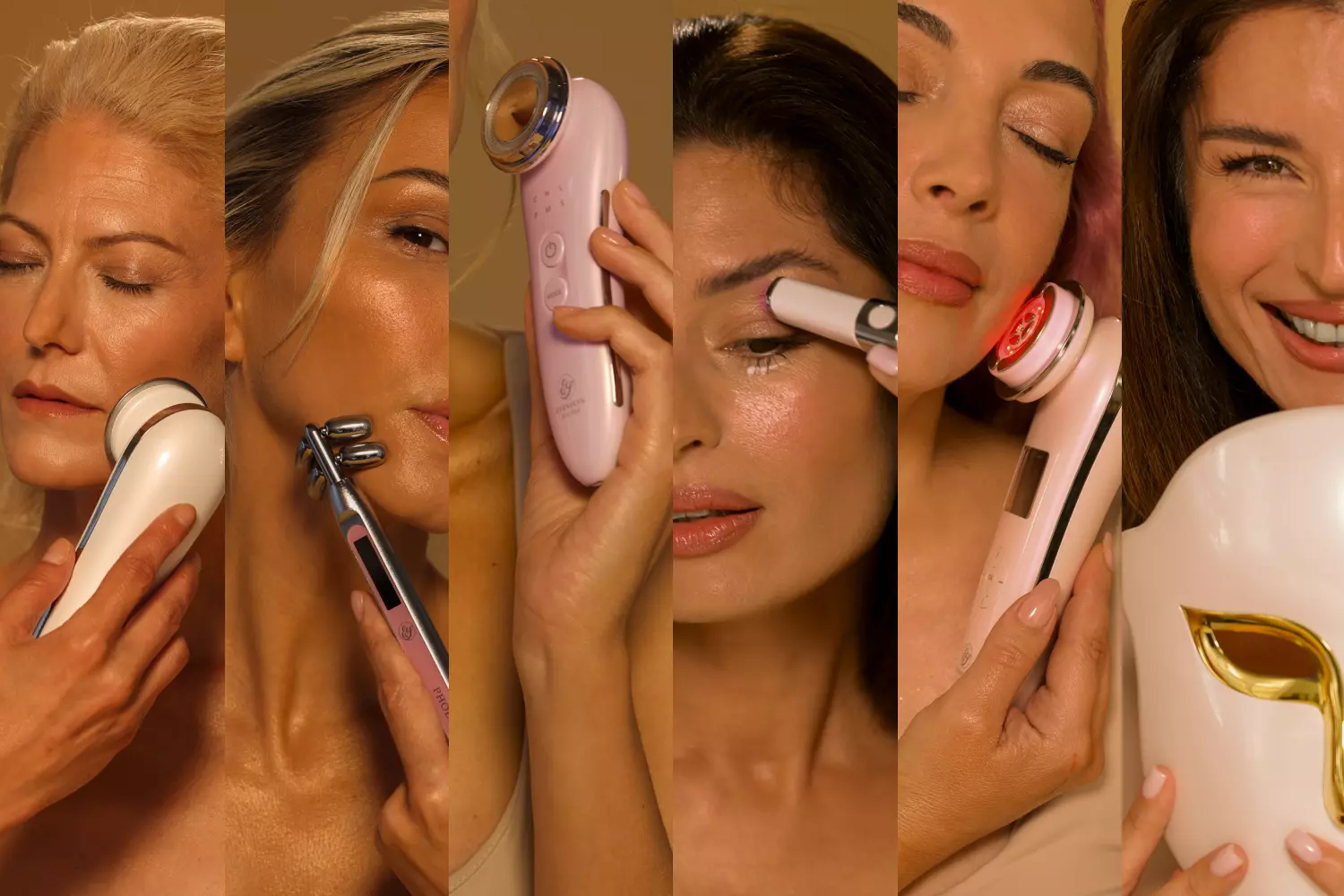
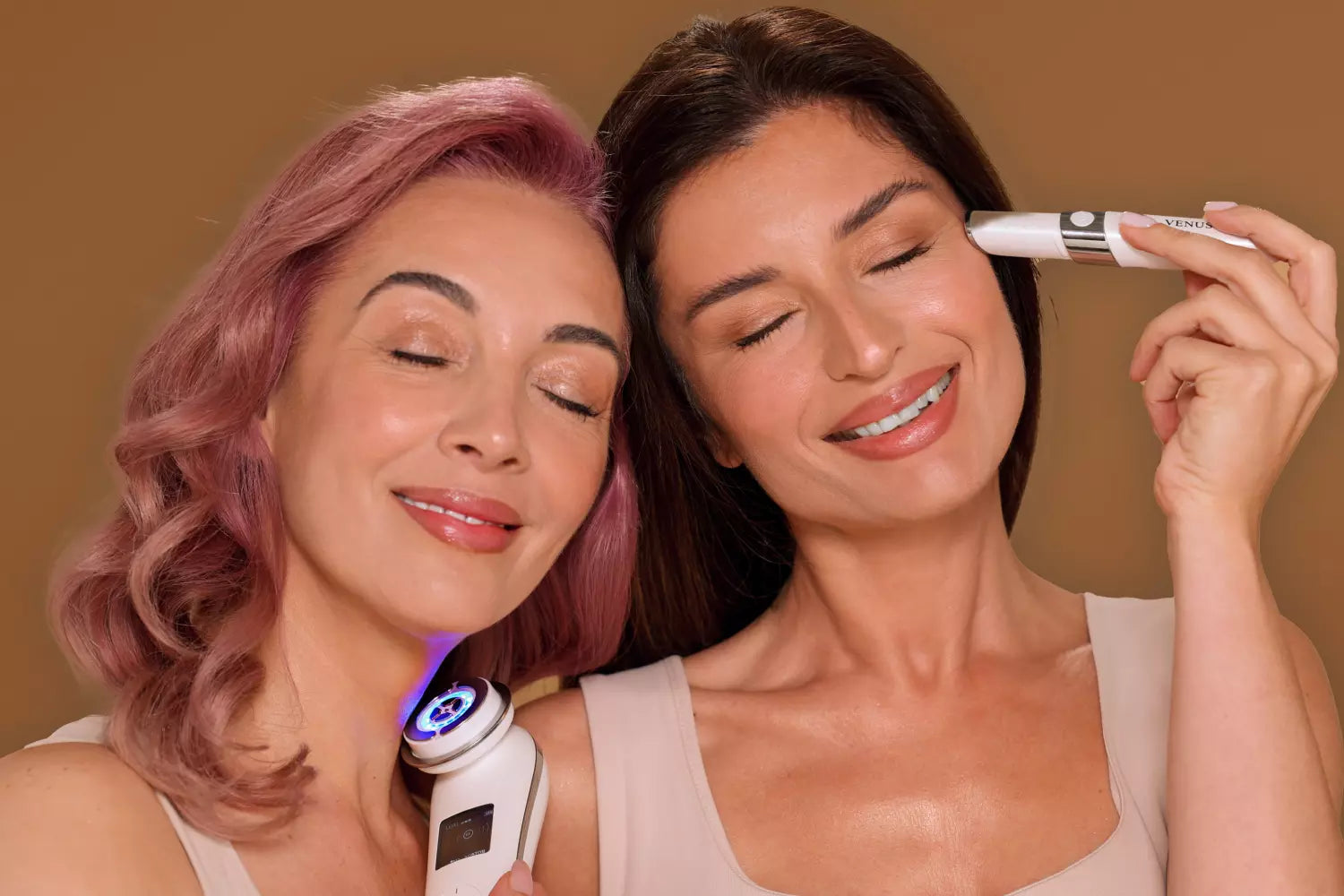
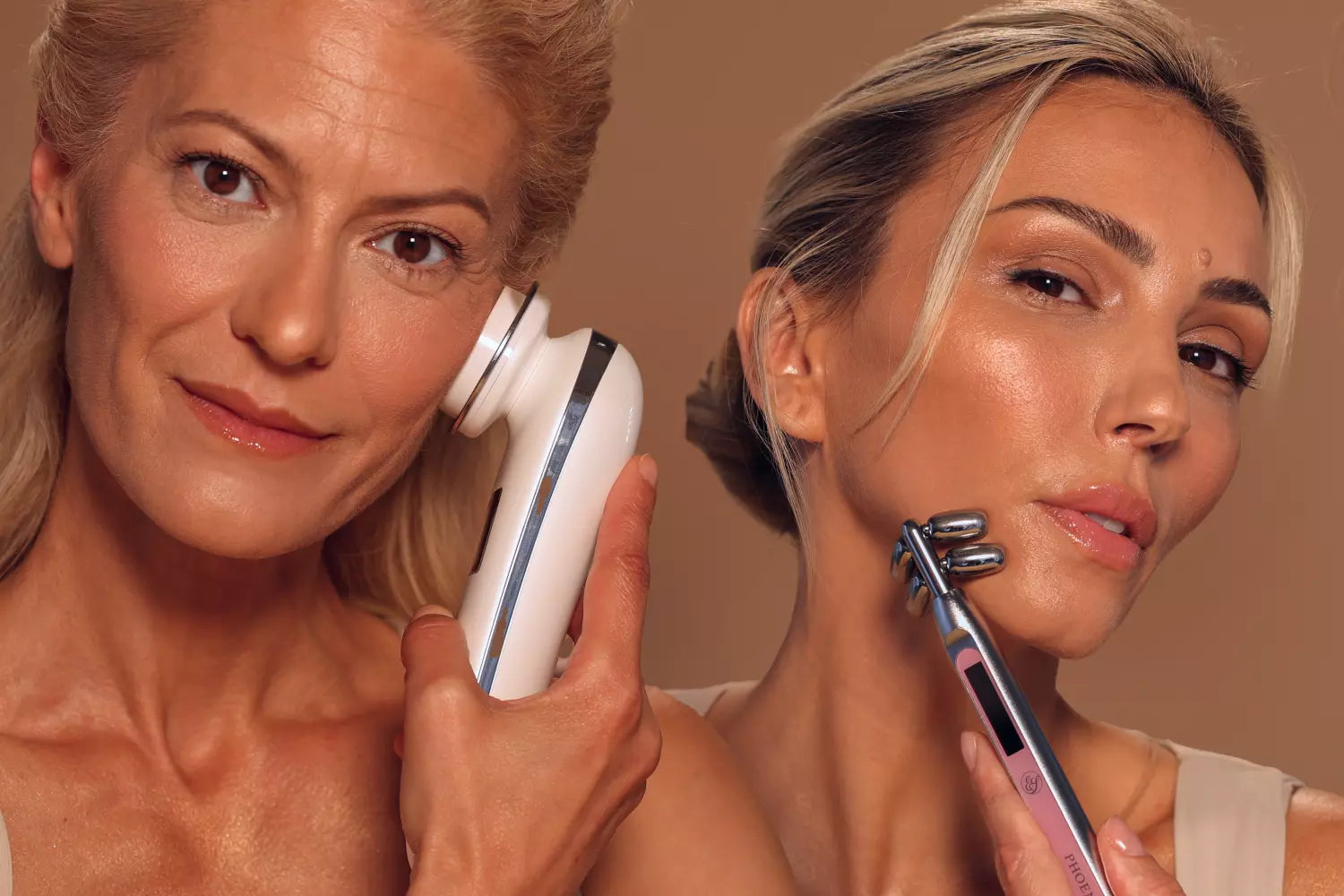
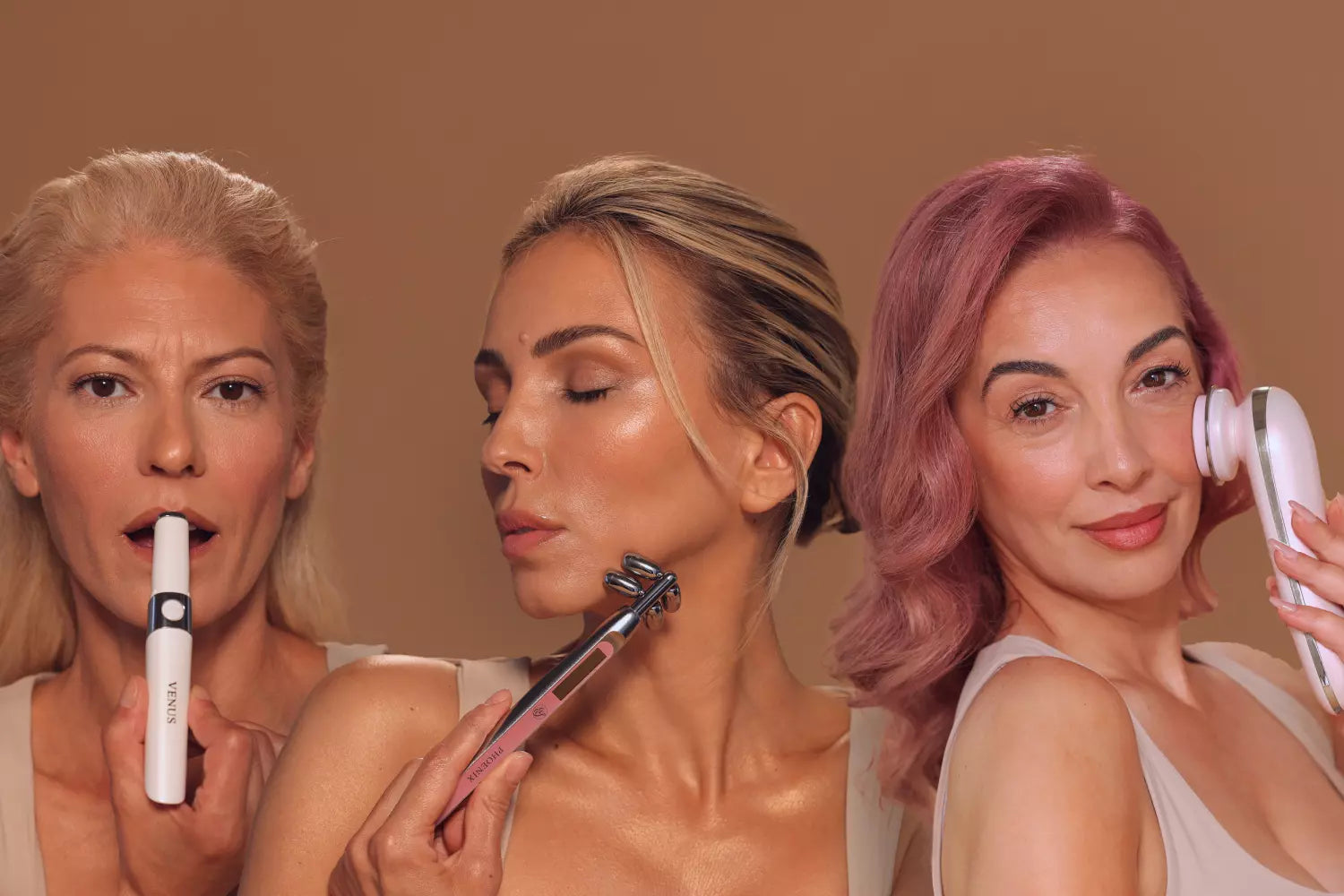

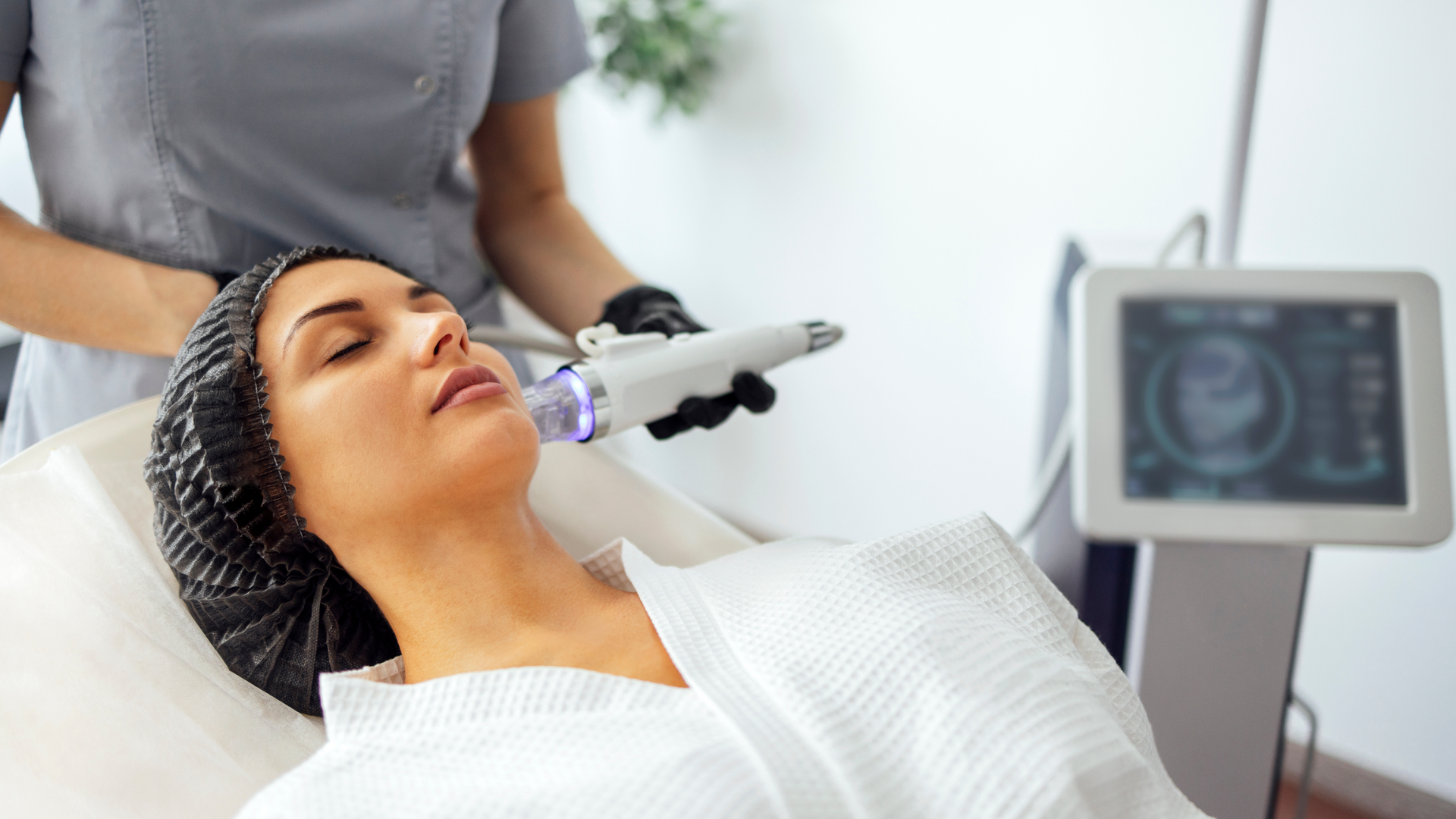
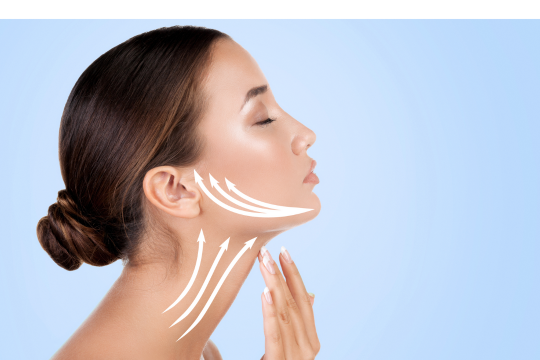
Leave a comment
All comments are moderated before being published.
This site is protected by hCaptcha and the hCaptcha Privacy Policy and Terms of Service apply.